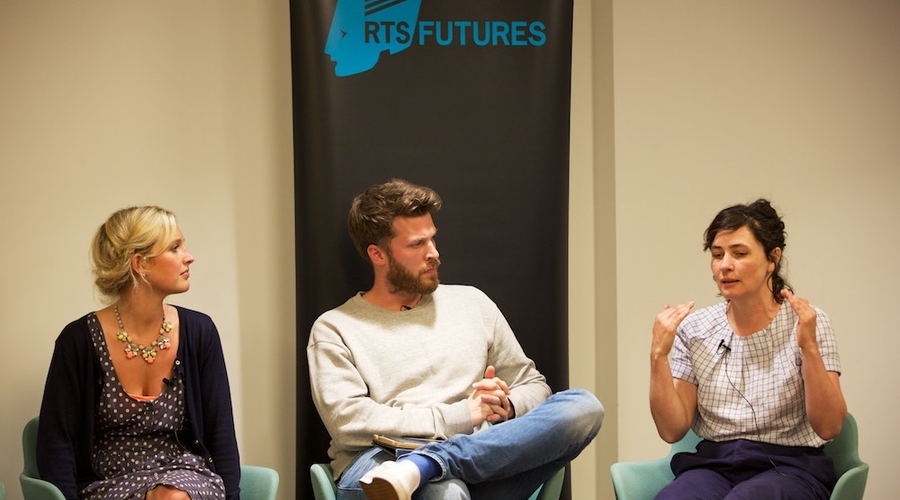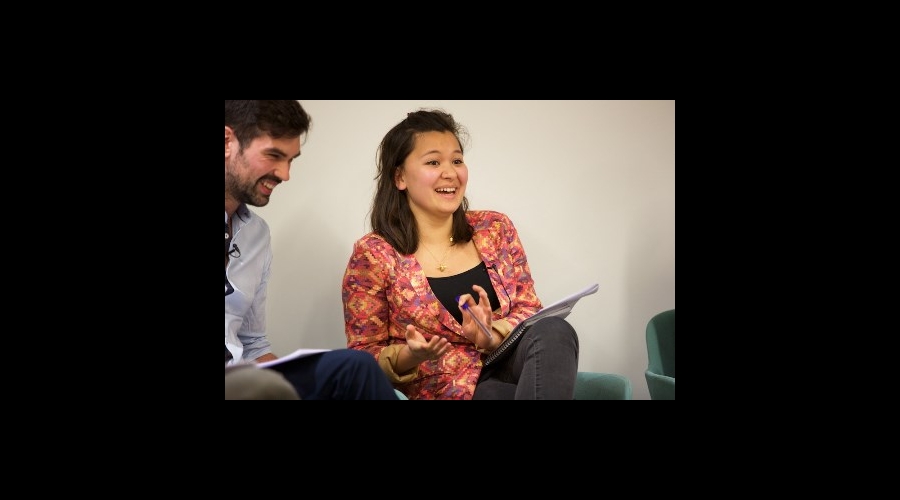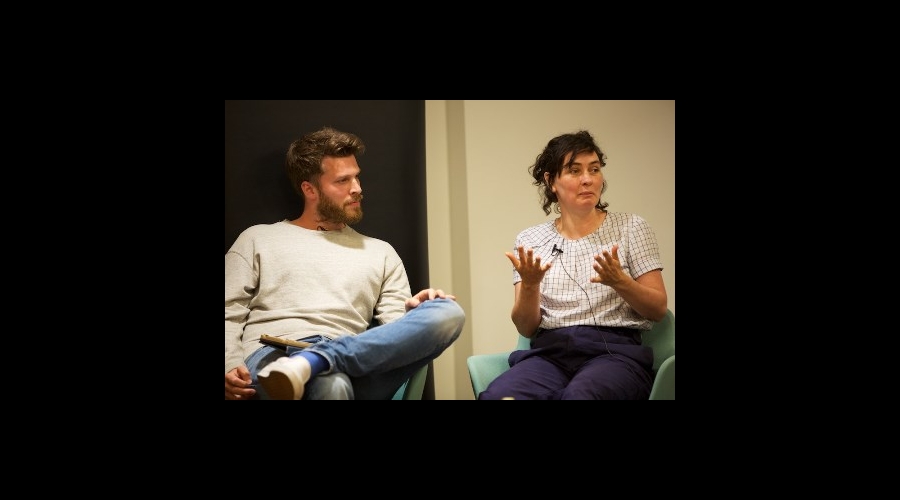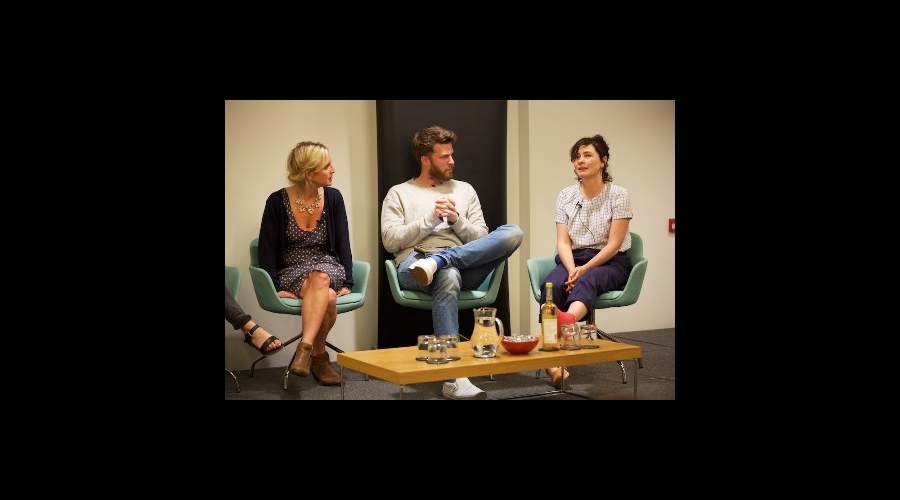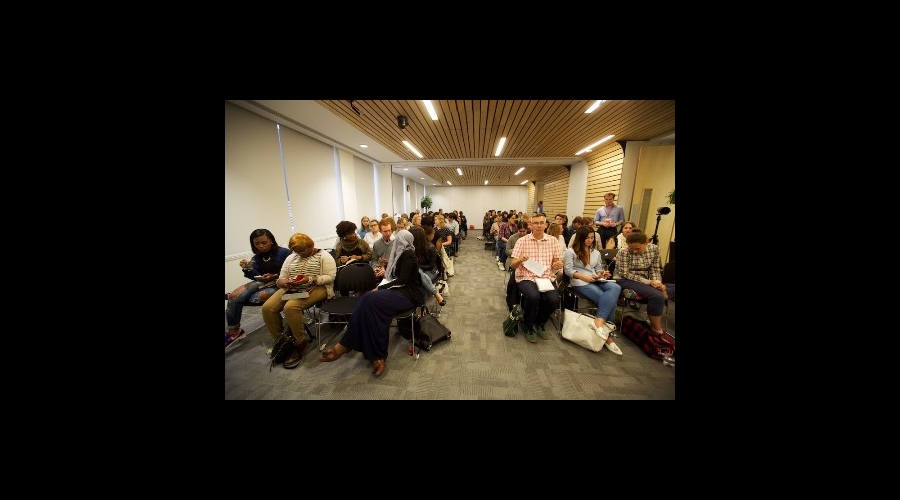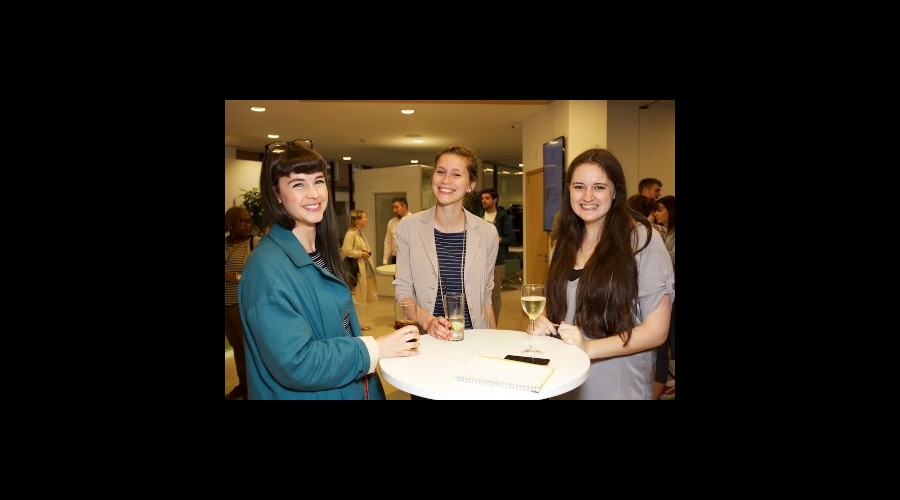"Research is the life blood of the TV industry" remarked host Rick Edwards
"Full House" signs were posted outside the latest RTS Futures event, which looked at the key role of the researcher in making good telly.
A panel of three researchers and two bosses discussed what it takes to be an ace researcher – a talent that event chair Rick Edwards admitted he didn't have. The presenter of BBC Three topical debate show Free Speech once worked as a researcher. "I definitely wasn't the best, which is why I ended up taking a different direction. In fact, I was rubbish," he said.
"Research is the life blood of the TV industry. Without research, we'd have no Big Brother, Gogglebox or Panorama," Edwards added. "Being a great researcher is the best way to fast track your TV career."
Key researcher attributes include common sense, energy, good attitude, an ability to listen, resourcefulness and an eye for detail. SWe don’t want people who think they know it all, said producer/director Victoria Bell, whose recent credits include the BBC Two documentary Traders: Millions by the Minute.
"If you don’t know something, don’t try and blag it",advised Emily Hudson, casting executive at Studio Lambert which makes Channel 4’s Gogglebox. "Be honest if you make a mistake."
All the panelists had experienced moments of panic or even disasters. Bell recalled one incident where a researcher had been too frightened to tell me, even though it wasn’t his fault that a location shoot had been cancelled. The crew turned up to film and couldn’t.
At some point, admitted Selina Tso, a researcher on Wall to Wall’s ITV series Long Lost Family, "you’ll mess up – it will happen to all researchers and it [will seem] like the worst feeling you’ve ever felt." She advised: "Tell someone because people will help you through it. Own up to [the mistake] quickly and don’t point fingers at other people."
"There are some bad bosses out there, really nasty shouty people. But [most] people working in telly are nice, clever, fun and interesting. They like being asked things, sharing their knowledge and nurturing talent. Telly is a creative environment; it’s not a horrible corporate place where you’re bashed for not knowing something," said Bell.
Both Hudson and Bell noted a reluctance among a younger generation of researchers wedded to the internet and social media to use the telephone or, indeed, talk to people. "Get on the phone", urged Bell. "It’s a challenge to begin with, but you will get better. You’re essentially a cold caller."
Internet sites such as Star Now advertise the talents of TV wannabes but, argued Hudson, they should only ever be a starting point. "Please pick up the phone – the worst people can do is to slam it down on you," she said.
"The first couple of research calls I made, I left the office to make them in the corridor," recalled Ayo Ajibewa,a researcher on BBC One consumer shows Rogue Traders and Watchdog. "I made the first call and the person was friendly and I realised I could do it."
"Generally people like talking about themselves," added so.
"Don’t ever be afraid to hear the word ‘no’," said Ben Ruby, a senior researcher on Sky One’s sports comedy panel show A League of Their Own. "Most of the time people love to help because they find the glitz and glamour of TV too much [to resist]."
"You are a social chameleon. You have to work out how to relate to another person and find something you have in common," added Hudson.
Ruby stressed the importance of accuracy in research: "Don’t believe everything you read online – check if it’s correct."
Edwards recalled an interview, fortunately not live, with the comic Gina Yashere that illustrated the peril of shoddy research. Trusting the biography he’d been given, Edwards read his introduction off the autocue. Yashere replied: "No that isn’t me – you’re thinking of another black comedian."
"How to be the best ... researcher" was an RTS Futures event, held at 110 Rochester Row in central London, on 8 June. The producers were Carrie Britton and Jude Winstanley.

